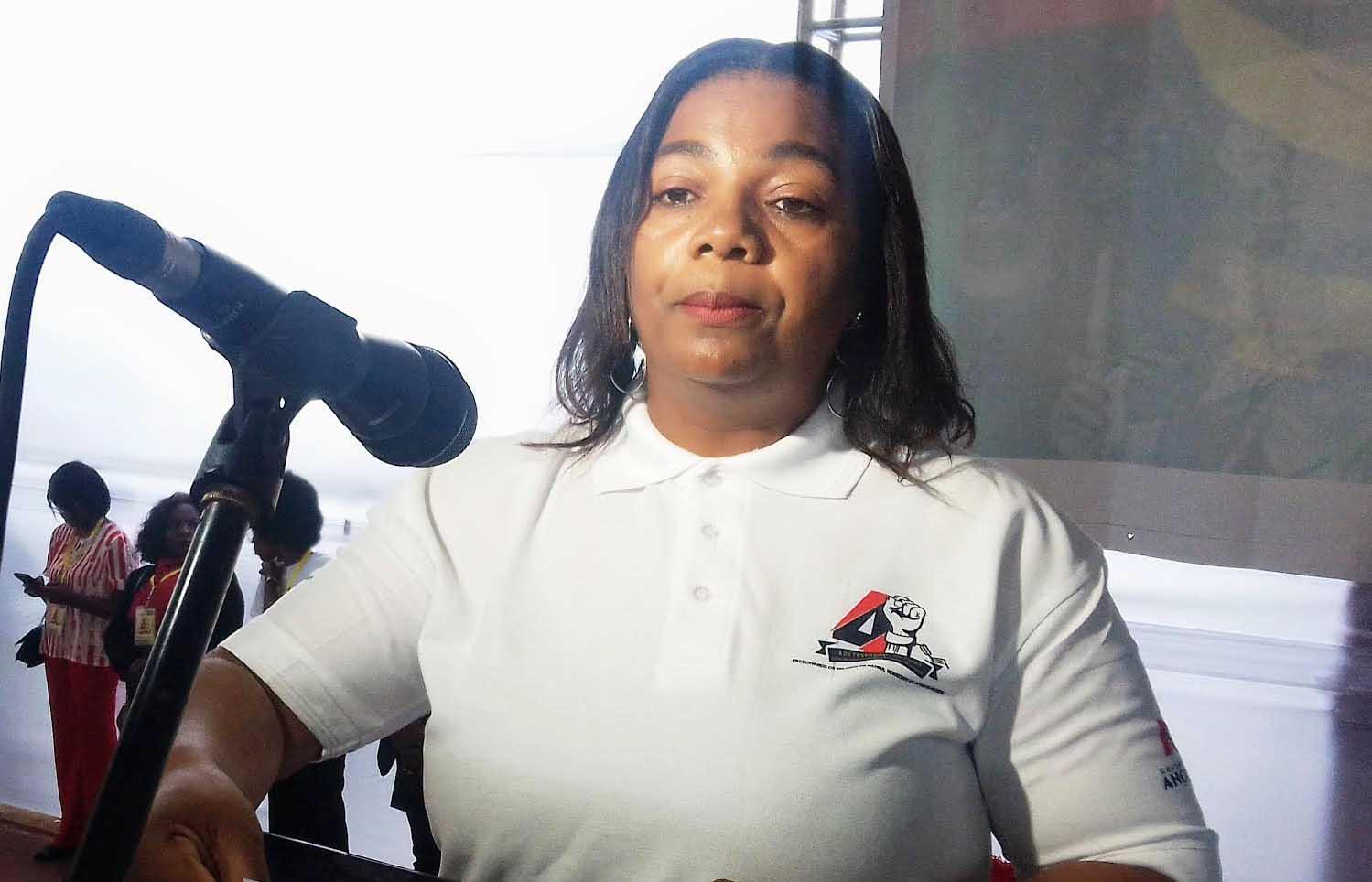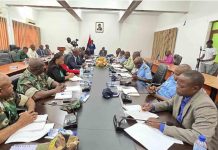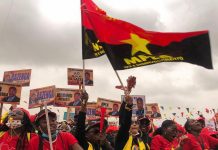Africa-Press – Angola. The vice-governor of Cuando Cubango for the political, social and economic sectors, Helena Chimena, requested Tuesday, in the city of Menongue, greater involvement of all the country’s forces in preserving peace, for the construction of a modern, democratic and prosperous Angola.
Helena Chimena spoke at the opening of the days commemorating the 4th of April, Day of Peace and National Reconciliation.
The vice-governor argues that the arduous task of preserving peace belongs to all Angolans, from political, religious, civil leaders, businesspeople, cultural and youth associations, based on the values of work, freedom, social justice, of mutual respect, solidarity, unity and reconciliation.
“Peace is one of the greatest goods that Angolans have achieved after decades of war and suffering”, highlighted the vice-governor, for whom, 22 years later, Angola experiences enormous certainty about the future, as a result of the conviction of all Angolans of that peace is definitive and is essential for sustainable development.
The official reiterated that peace is an irreplaceable good and that it must be devoid of partisan color, taking into account the long years of armed conflict, but that today the people increasingly enjoy its fruits, a fundamental factor for the development of any nation.
According to Helena Chimena, it is extremely important that young people are rational users of social networks, in order to make the most of their personal, professional, scientific and learning progress, encourage and promote the spirit of tolerance and mutual respect, exalting love to the homeland and respect for national symbols.
Present at the opening were members of the government, representatives of political parties, churches recognized by the State, youth and philanthropic associations, students from the Cuito Cuanavale University and the Instituto Superior Politécnico Privado de Menongue (ISPPM), among other guests.
Experts defend the use of social networks to promote peace
Those responsible for social inclusion, communication and justice administration services in Cuando Cubango defended today, Tuesday, the use of social networks in a more rational way to promote a culture of peace in communities.
When debating the topic: “Contents on social networks as the Promotion of Peace”, within the framework of the day commemorating the 22 years of Peace and National Reconciliation, to be marked on April 4th, those responsible defended greater educational work to educate the population, especially young people, for greater balance in the publication of content.
According to Lérias Biwango, head of provincial services at the National Children’s Institute (INAC), in order to spread the culture of peace, it is necessary to respect life and reject any and all types of violence, conflicts or other problems.
Therefore, he argued that content to be shared on social networks must be directly linked to the promotion of a culture of peace, aiming to ensure social harmony, stability and human rights, adding that it is important to convey information in an ethical manner, even if it is aimed at the critical side.
The Deputy Attorney of the Republic at the Criminal Investigation Service (SIC), Félix Nunes de Freitas, explained that, when content shared on social networks harms the honor and good name of citizens, it already amounts to crimes such as defamation. , slander, reprehensible and punishable under article 214 of the Penal Code, with a prison sentence of up to one year or a fine of 115 days.
“Investment in digital education is fundamental so that the use of the Internet is ethical, so that the information conveyed is absorbed in a critical and reflective way and, thus, we can take advantage of the many possibilities of communication, production and dissemination of knowledge, affections, fights for rights, as well as services and business”, he concluded.
For his part, the Executive Secretary of the Provincial Youth Council, Miguel Tchissingui, argues that the image to be taken on texts shared on social media profiles must be cautious and constructive, as they reveal the personality and objectives of their authors.
He vehemently condemned young people who lack patriotic feelings and disrespect people who lost blood and other means to achieve peace, publishing content that endangers social peace.
He considered that whatever the environment, young people must strive for a feeling of peace so as not to develop practices that are not beneficial to society.
He observed that political, social or economic criticism on social networks can occur normally, but it must be constructive and well prepared so that it creates an environment favorable to peace in a regulated manner.
In his speech, journalist José Jaime argues that children must be educated in the correct use of equipment, under penalty of sharing inappropriate content, as the problem lies in the ability to publish, without filtering what is good from what is bad, placing the country’s development is at stake.
Computer engineer Marcolino Chiungue said that social networks are virtual spaces for interaction with people close to them physically or virtually, whose number of users in Angola is approximately two million, of which more than 60 percent are young people.
He stated that networks cannot be an obstacle to maintaining peace, but everything must involve education about social networks and legal instruments such as the penal code and the press and social communications law.
“The contents that should deserve dissemination are those that bring an atmosphere of promoting peace. Social networks, like all communication technologies, are not completely harmful, they are beneficial, but it is the way we use them that defines them. The content emanates from the person’s heart and is often a reflection of the lack of education that transfers everything to social networks,” she highlighted.
ANGOP
For More News And Analysis About Angola Follow Africa-Press






